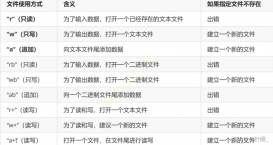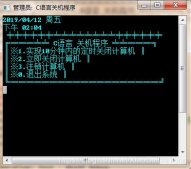C++實(shí)現(xiàn)統(tǒng)計(jì)代碼運(yùn)行時(shí)間計(jì)時(shí)器的簡(jiǎn)單實(shí)例
一、前言
這里記下從網(wǎng)上找到的一些自己比較常用的C++計(jì)時(shí)代碼
二、Linux下精確至毫秒
|
1
2
3
4
5
6
7
8
9
10
11
12
13
14
15
16
17
18
19
20
21
|
#include <sys/time.h> #include <iostream> #include <time.h> double get_wall_time() { struct timeval time ; if (gettimeofday(&time,NULL)){ return 0; } return (double)time.tv_sec + (double)time.tv_usec * .000001; } int main() { unsigned int t = 0; double start_time = get_wall_time() while(t++<10e+6); double end_time = get_wall_time() std::cout<<"循環(huán)耗時(shí)為:"<<end_time-start_time<<"ms"; return 0; } |
三、Windows下精確至毫秒
|
1
2
3
4
5
6
7
8
9
10
11
12
13
|
#include <windows.h> #include <iostream> int main() { DWORD start, stop; unsigned int t = 0; start = GetTickCount(); while (t++ < 10e+6); stop = GetTickCount(); printf("time: %lld ms\n", stop - start); return 0; } |
試驗(yàn)中,發(fā)現(xiàn)貌似getTickCount函數(shù)會(huì)有10幾毫秒的誤差,囧。。。
四、Windows下精確至微秒
|
1
2
3
4
5
6
7
8
9
10
11
12
13
14
15
16
17
18
19
20
21
22
23
24
25
26
27
28
29
30
31
32
33
34
35
36
37
38
39
40
41
42
43
44
45
46
47
48
49
50
51
52
53
54
55
56
57
58
|
//MyTimer.h// #ifndef __MyTimer_H__ #define __MyTimer_H__ #include <windows.h> class MyTimer { private: int _freq; LARGE_INTEGER _begin; LARGE_INTEGER _end; public: long costTime; // 花費(fèi)的時(shí)間(精確到微秒) public: MyTimer() { LARGE_INTEGER tmp; QueryPerformanceFrequency(&tmp);//QueryPerformanceFrequency()作用:返回硬件支持的高精度計(jì)數(shù)器的頻率。 _freq = tmp.QuadPart; costTime = 0; } void Start() // 開始計(jì)時(shí) { QueryPerformanceCounter(&_begin);//獲得初始值 } void End() // 結(jié)束計(jì)時(shí) { QueryPerformanceCounter(&_end);//獲得終止值 costTime = (long)((_end.QuadPart - _begin.QuadPart) * 1000000 / _freq); } void Reset() // 計(jì)時(shí)清0 { costTime = 0; } }; #endif //main.cpp #include "MyTimer.h" #include <iostream> int main() { MyTimer timer; unsigned int t = 0; timer.Start(); while (t++ < 10e+5); timer.End(); std::cout << "耗時(shí)為:" << timer.costTime << "us"; return 0 ; } |
感謝閱讀,希望能幫助到大家,謝謝大家對(duì)本站的支持!
原文鏈接:http://blog.csdn.net/ap1005834/article/details/53419647














